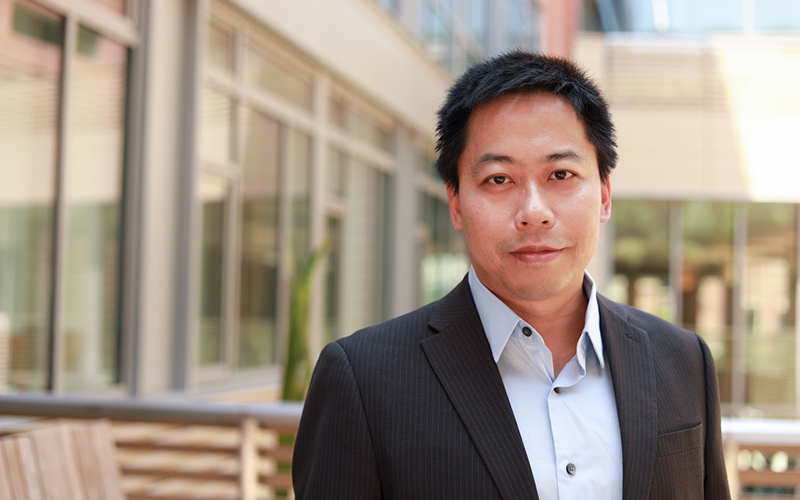Professor Yongjie Hu of UCLA Mechanical and Aerospace Engineering is among 87 of the nation’s brightest young engineering innovators who have been selected to take part in the National Academy of Engineering’s (NAE) 25th U.S. Frontiers of Engineering symposium.
“This is a one-of-a-kind event that brings together bright young engineers from different technical areas to spark innovative ideas and to facilitate, what often turn out to be, career-long collaborations,” said NAE President C. D. Mote, Jr. “When you foster a creative space for engineers to collaborate and work together, experience shows that the possibilities are endless.”
Participants are engineers age 30 to 45 — from industry, academia, and government — are selected for their exceptional research and technical work from nominations by fellow engineers or organizations. This year’s symposium will be hosted by Boeing South Carolina in North Charleston, Sept. 25-27, and will cover cutting-edge developments in four areas: Advanced Manufacturing in the Age of Digital Transformation; Engineering the Genome; Self-Driving Cars: Technology and Ethics; and Blockchain Technology.
The mission of the NAE is to advance the well-being of the nation by promoting a vibrant engineering profession and by marshalling the expertise and insights of eminent engineers to provide independent advice to the federal government on matters involving engineering and technology. The NAE is part of the National Academies of Sciences, Engineering, and Medicine, an independent, nonprofit organization chartered by Congress to provide objective analysis and advice to the nation on matters of science, technology, and health. Since 1995, NAE has held an annual U.S. Frontiers of Engineering Symposium that brings together nearly 100 highly accomplished early-career engineers from U.S. universities, companies, and government to discuss leading-edge research and technical work across a range of engineering fields. Convening engineers from disparate fields and challenging them to think about developments and problems at the frontiers of areas different from their own can lead to a variety of desirable results. These include collaborative work, the transfer of new techniques and approaches across fields, and establishment of contacts among the next generation of leaders in engineering.

